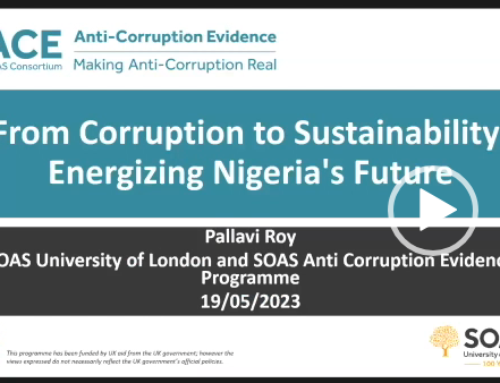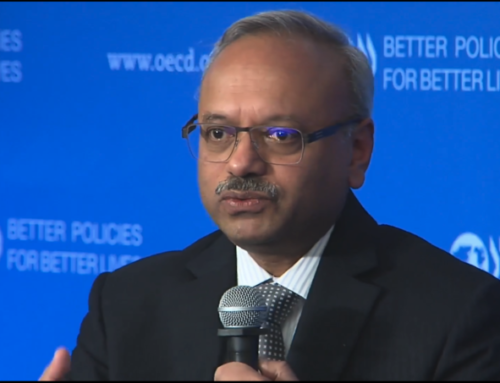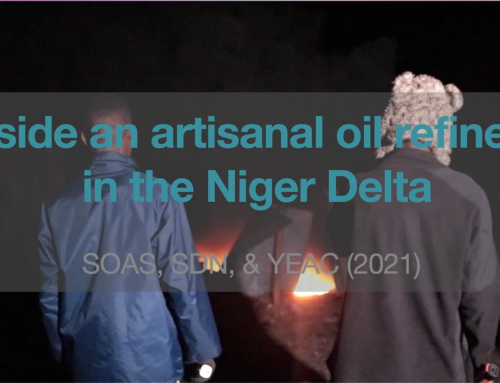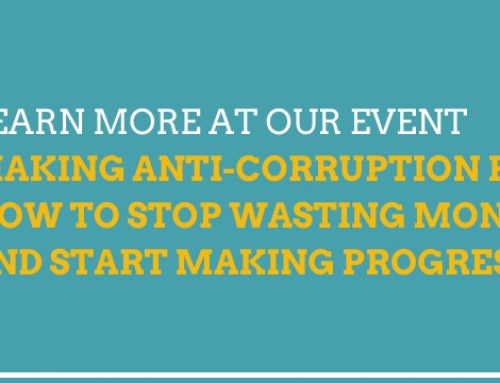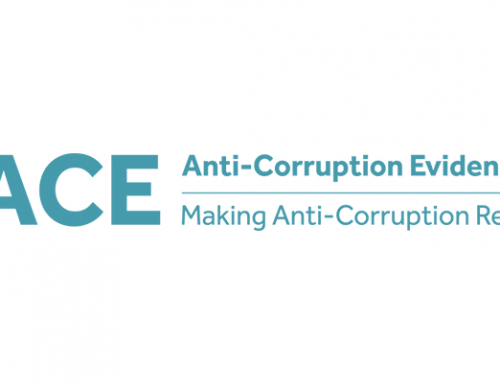In this fourth podcast of the Anti-Corruption Evidence research consortium (SOAS-ACE), Mushtaq Khan, Pallavi Roy, Neil McCulloch and Muzna Al-Masri in conversation with Sophie Van Huellen unpack the complex story of corruption in the electricity sector in Bangladesh, Nigeria and Lebanon.
Getting access to reliable and cheap electricity in developing countries is difficult, especially for poorer residential consumers and small firms. The three countries that are the subject of this podcast are no exception, even where oil and gas resources are abundant, like in Nigeria. As part of their research on anti-corruption ACE researchers have investigated the political economy of the electricity sector, focusing on the specific nature of investments, business-government relations and their developmental implications.
The debate is not a simple matter of ensuring transparency and better enforcement. The discussion takes on board how opportunities for change can be identified given the seemingly adverse contexts in each of these countries where enforcement is typically difficult. Listeners will learn about the causes of corruption within the electricity sector but more importantly, the researchers explain why de-risking solutions should be considered to achieve change.
What is the electricity problem in each country?
In Bangladesh, energy provision is reliable but not affordable. The absence of competitive bidding is the main reason why the sector is dominated by politically connected private energy companies. These companies are prioritised for supplying electicity despite higher mark ups, possibly due to their levels of connectedness resulting in unsustainably high electricity prices for most consumers.
In Nigeria the privatisation of the sector failed to improve many instances of legacy misgovernance inherited from the state. Added to these legacy issues the sector is now dominated by politically connected players who operate in non-transparent ways and do not invest in ensuring more reliable power supply. Power generation remains low, distribution is inefficient and debts are mounting. This has led to consumers and small businesses being forced into finding informal arrangements for power supply like stealing electricity, buying smuggled diesel (for generators) at times of great demand, or not paying bills.
In Lebanon, the electricity sector is dominated by a state-run monopoly, EDL, which generates electricity at very high costs but sells for a low price. This results in huge economic losses contributing to a crisis only worsening in the face of the Covid-19 pandemic. The unreliability of power supply forces many consumers to invest in illegal generators as a backup. Like in Nigeria corruption occurs all along the electricity value chain. However, ACE research focused on one private player generating on behalf of EDL that has been able to provide near-uninterrupted electricity despite evidence of collusion.
What are the feasible anti-corruption strategies?
Different contexts have different specific solutions, whether we look at SMEs in Nigeria, consumers in Lebanon, or the opaque contracting landscape in Bangladesh. However keeping in mind country-specific issues our research also identifies one broad common prescription that could work as a solution – how investment risks could be reduced for unconnected players in the sector who do not maintain unusually close links with powerful politicians.
In the case of Bangladesh, direct subsidies via low-cost finance can reduce investor risk, increase competition and save millions of dollars for the government and consumers.
In Nigeria and Lebanon, different strategies are being explored involving the design of institutional mechanisms or policies including access through mini-grids and identifying consumers’ willingness to pay for reliable access to electricity.
Central to these strategies lies the SOAS-ACE approach of horizontal enforcement where anti-corruption strategies include ‘insiders’ or those productive players interested in upholding rules in their sector for their own benefit. This is more likely to work than top-down vertical enforcement that includes disciplining powerful, politically connected players who have little incentive to adhere to rules.
We’re coming up with ‘out of the box’ ways of solving the problem of pricing and supply and also cleaner energy in ways that are feasible to imagine in the kinds of developing countries that we’re working in.
(Mushtaq Khan, Executive Director of the SOAS-ACE research consortium)


